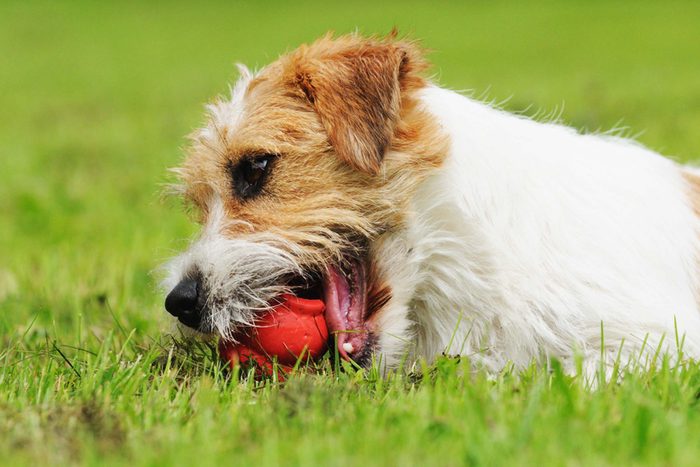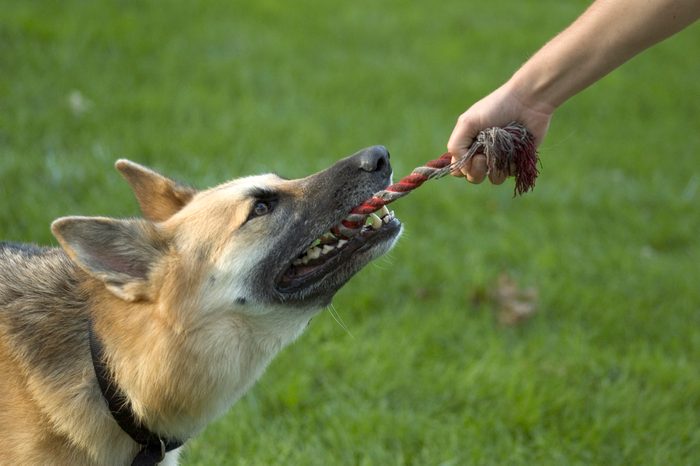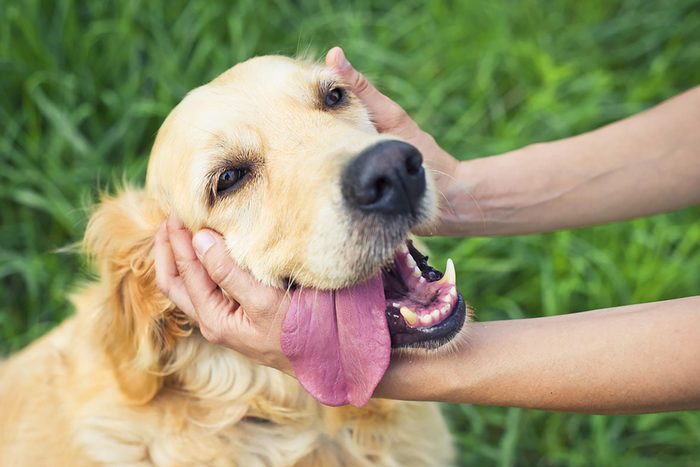If your pup can learn a trick with little training, that’s just one sign he’s a smart dog—according to dog experts, there’s plenty more to prove it

How Smart Is Your Dog? 13 Signs of a Smarty-Pants Pooch


They remember a command from a year ago
How smart are dogs? Well, most pups can be taught to obey some commands, but a really smart dog will remember those commands over time, even if they haven’t been used in a while, says Cabral. “For instance, if I taught a dog to walk backward on command and haven’t done it with him in a year, if he’s smart, he will still remember how to do it when asked,” he says. So the next time you’re training your dogs, try giving them a command they haven’t heard in a while to determine their intelligence.

They can solve a treat puzzle
Smart pets are innately great problem solvers, Cabral says. So to test your pup’s problem-solving abilities, get them a food puzzle (a toy that has to be manipulated in a certain way to get to a treat). If they can solve it without your help, they’re smart, Cabral says. Want a cheaper option? Make your own food puzzle using a treat in a box, or hide a treat somewhere around the house.

They can find the open door
Some dogs are master escape artists. While that can be frustrating for owners, it’s actually a sign of high intelligence, Cabral says. One way to test this skill is to let your dog out one door, close it and then open a different outside door to your house. Smart dogs will be able to find their way back in even if their original or usual point of entry is closed, he explains.

They start a game with you
Lots of dogs will play tug-of-war when you hold out the rope toy, but smart dogs will initiate games by communicating their desires to you, Cabral says. For instance, does your dog “speak,” pat you, bring you a toy or spontaneously use another behavior you’ve taught them to get you to pay attention to them? This is different from barking wildly or jumping all over you, as those are not skills you’ve taught your dog (at least not on purpose!).”The dog’s desire to work as a team shows me that her intelligence is ripe,” Cabral says. “Remember, wisdom is only wisdom if it’s shared—and that’s true of dogs as well as humans.”

They snuggle with you when you’re sad
Intelligent dogs are very good at sensing and interpreting your emotions. Had an awful day at work? Fight with your spouse? A smart dog will read your sadness and double up as an emotional support dog by taking steps to comfort you, such as cuddling up with you or refusing to leave your side until your tears dry, she says. In return, make sure you’re taking care of your pup too!

They understand what your suitcase means
Being highly observant is another characteristic that smart dogs share. For instance, when you pull out your suitcase, does your dog recognize that it’s a sign something is about to change, like you’re going on a trip? Dogs may show their understanding by trying to jump or hide in your suitcase, or they might stick unusually close to you.

They bump your hand for scratches
Dogs love attention, and smart dogs will know how to get it. Intelligent dogs will place their head under your hand and bump it to prompt you to give them a scratch behind the ears, or they may even “pet” you as an example of how they want you to pet them.

They take safety precautions
Dogs must be taught how to safely navigate situations like crosswalks, but a smart dog will take the initiative and look for safety risks—like a speeding car heading toward that crosswalk—and react accordingly, says Brandenburg. Has your pet ever stepped in front of you to prevent you from walking into a busy street? Or does your dog show caution before going into a new place? If so, that’s a sign that they’re one of the smart dogs.

They can learn a new trick in just a few tries
Most dogs can be taught to follow commands—it just takes some of them a lot longer than others. While you try and teach them new tricks, you might wonder, How smart is my dog? Well, the faster your dog learns a new trick and the more commands they know, the greater their intelligence, Brandenburg says. For example, if you have to tell your dog “no” to jumping on strangers only a handful of times, they’re pretty darn smart. If you have to tell them only once, sign them up for doggy Mensa!

They can make you do their bidding
“No one likes to hear this, but our pets also train us,” Brandenburg says. “Do we jump up when they run to the back door? Do we get out the food when they bring us their bowl?” How well-trained you are is a sign of how smart your dog is, she says. (And fun fact, cat owners: Dogs aren’t the only ones that manipulate humans; cats do too.)

They know the way to the vet’s office
If your dogs get excited on the way to their favorite dog park or anxious on the way to the vet, it not only means they can recognize their surroundings but also that they can remember the route to the destination. Recognizing locations and direction is a clear sign of smart dogs, Brandenburg says.

They learned how to open a door after watching you do it
How smart are dogs? Some learn new tricks without any training. That’s right: One indicator of your dog’s intelligence is whether or not they pick up skills simply by observing, says Jeff Franklin, a professional dog trainer who oversees the selection and instruction of elite canines assigned to the U.S. military. “Dogs that can watch either humans or other dogs doing certain tasks, such as opening doors or gates, and learn from their example are certainly more trainable and may be smarter,” he explains.

They look to you for instruction first
How much dogs naturally look to their owners for direction can be a sign of intelligence, Franklin says. “A smart dog will not only follow direction but will look to you for cues for what to do,” he says. Still wondering, How smart is my dog after all? The answer may lie in how readily they await your instructions.
About the experts
|
Why trust us
At Reader’s Digest, we’re committed to producing high-quality content by writers with expertise and experience in their field in consultation with relevant, qualified experts. We rely on reputable primary sources, including government and professional organizations and academic institutions as well as our writers’ personal experiences where appropriate. We verify all facts and data, back them with credible sourcing and revisit them over time to ensure they remain accurate and up to date. Read more about our team, our contributors and our editorial policies.
Sources:
- Robert Cabral, professional dog trainer, behavior specialist and founder of Bound Angels
- Yvonne Brandenburg, CVT, RVT, VTS, registered veterinary technician and founder of Internal Medicine for Vet Techs
- Jeff Franklin, professional dog trainer




















